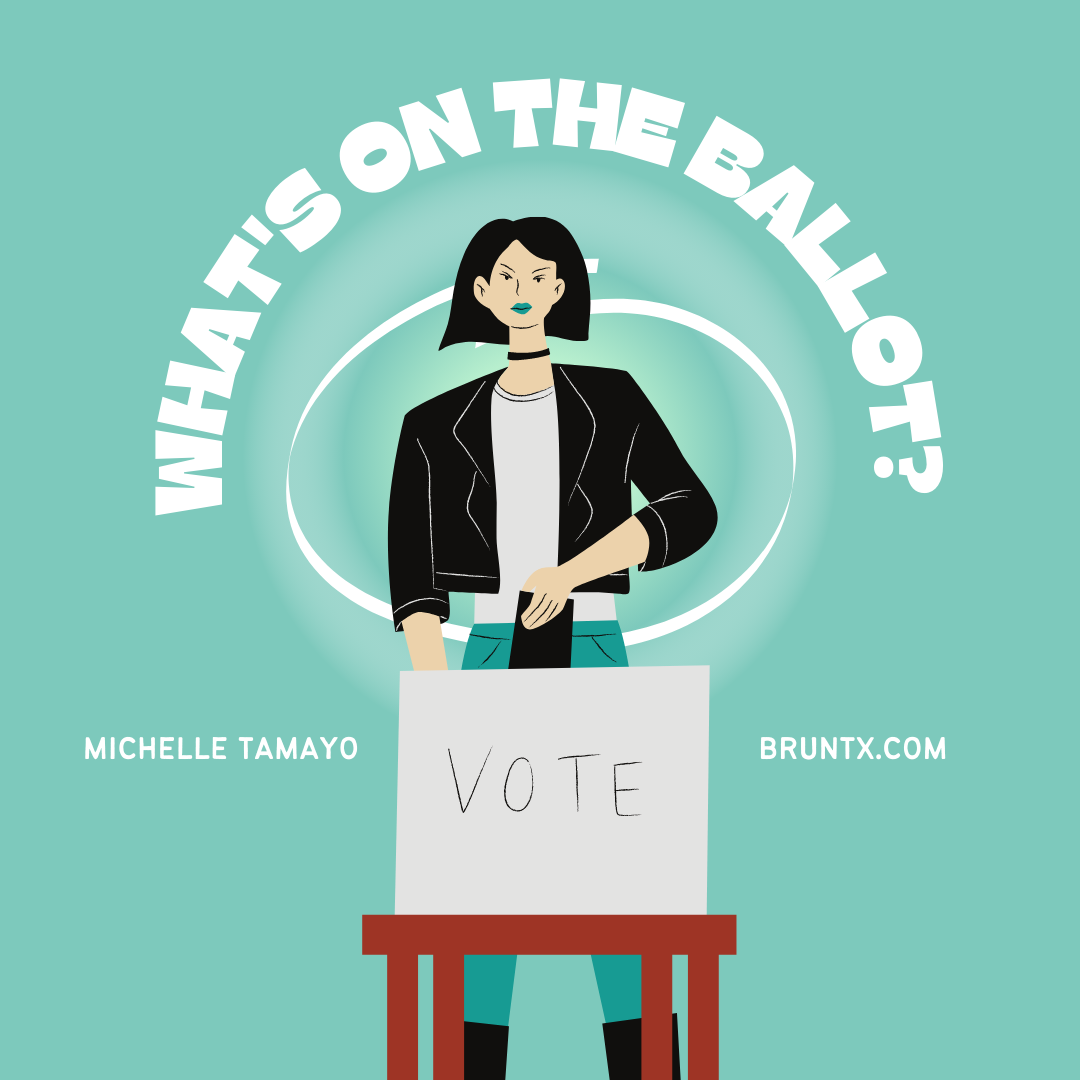Early voting in Austin has begun! From Oct. 18 to Oct. 29, Travis County residents are eligible to vote. Election Day is on Nov. 2. If you want to make an informed decision, keep on reading to find out what’s on your ballot.
The Austin ballot is composed of Propositions A and B and Propositions one through eight.
But what do propositions do? They suggest a program or plan of action.
Propositions A and B are Austin local plans that will affect policing and parkland.
There are two options when voting for Proposition A: voting YES or voting NO (you have to choose).
Voting YES for Proposition A means:
- Increasing police staff to meet the minimum staff required to match Austin’s population. There would need to be two police officers per 1,000 residents.
- Add 40 hours to police training
- Increase compensation for officers who are bilingual (or proficient in other languages), officers who enroll in mentor cadet programs and officers recognized for honorable conduct.
Please note that proposition A does not include the funding for these plans. Funding will come from an increase in taxes or cutting funding from other departments such as the fire department.
Similarly, there are two options for Proposition B: Voting YES or voting NO (again, you have to choose.).
Voting YES for Proposition B means:
- Authorization of land swap; Austin will trade nine acres of city parkland for 48 acres of waterfront property to turn into a park
The nine acres of parkland the city currently owns is home to ATX’s Parks and Rec Central Maintenance Complex and because the property is considered parkland, the city must vote to get rid of it
Onto propositions one through eight!
Did you know the state of Texas has a constitution? All states do! It’s what allows them to be their own state.
Like any other constitution, this one has amendments. Propositions one through eight are amends to the Texas constitution, so let’s figure out what they will change:
Proposition 1:
This amendment would allow sport teams to hold raffles at rodeos.
Proposition 2:
This amendment would allow counties to issue bonds (money) to fund infrastructure and transportation projects in undeveloped areas. It also prohibits counties that issue such bonds from pledging more than 65% of that money.
Proposition 3:
This amendment would prohibit the state from passing a law that limits religious services and organizations.
Proposition 4:
This amendment changes the eligibility for state judges. The most prominent changes are:
Must be a Texas resident and U.S. citizen
Must have 8 – 10 years of attorney/judge experience
Proposition 5:
This amendment would allow the State Commission on Judicial Conduct to investigate candidates of the judicial office.
Proposition 6:
This amendment would allow residents of assisted living facilities to have an essential caregiver that cannot be prohibited from in-person visitation.
Proposition 7:
This amendment would allow the surviving spouse of a disabled individual to keep a homestead property tax limit (reduced school taxes and $10,000 tax exemption) if 55 years or older.
Proposition 8:
This amendment would qualify the surviving spouse of a military member (who has died or been severely injured) for a total homestead property tax exemption (so they don’t have to pay property taxes).
Now that you know what each proposition is, go vote! The current propositions are critical to the future of Austin. Voting stations are available at the Flawn Academic Center and Gregory Gym!
